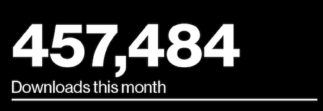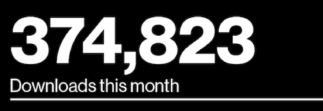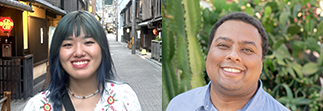
The Libraries’ IAP panel on authors’ rights and access to research is now available as a videotape for free viewing over the internet. The panel examines how MIT authors can take actions that will increase the impact of their own work, and serve the advancement of science and technology by maximizing the full potential of research to be shared and reused.
The speakers (in order pictured) include:
Ann Wolpert : Director, MIT Libraries
Thinh Nguyen: Science Commons Counsel
Brian Evans: EAPS Professor of Geophysics
Ellen Duranceau: MIT Libraries Scholarly Publishing and Licensing Consultant
Ann Hammersla: MIT Intellectual Property Counsel
Claude Canizares: Associate Provost
Summary Adapted From MIT World:
 |
Ann Wolpert’s panel should set off alarm bells among academics who imagine they may enter blithely into a publishing agreement in the digital age. |
 |
Claude Canizares sets the stage, describing the transformative changes in academic publishing: the disappearance of a paper-driven industry (with limited and controlled copies of authors’ works) and the emergence of internet publishing, “where anything goes.†The inexorable consolidation of academic publishers has allowed “relatively small numbers to exert significant control.†This leads to conflict with institutions like MIT, whose mission is research and the untrammeled dissemination of knowledge. Canizares himself has been subject to copyright agreements that limit his ability to use his own work. “We’d like to make it much easier for authors,†says Canizares. |
 |
The archives of Britain’s Royal Society going back 350 years are available online today, says Thinh Nguyen, “but the catch is, you have to be a current subscriber to download†this content. Newton’s article on the invention of the telescope costs $9. “This is the essence of the current model: a gated community of information.†Nguyen’s Science Commons enterprise attempts to reduce legal barriers to scientific research. For instance, he hopes to allow internet users to conduct software searches of online journals—currently prohibited by many publishers. Nguyen encourages scientists who publish to consider alternatives to signing over copyright to publishers without first attempting to negotiate the terms of ownership. |
| <img src=”http://news-libraries.mit.edu/blog/wp-images/thumb-annhammerslaiap.jpg” hspace=”10″ width=”200″ height=”133″ alt=”ann hammersla iap” / | In her job as intellectual property overseer for MIT, Ann Hammersla works to retain as many rights for authors as she can. She’s engaged in the challenging job of working out arrangements with publishers that enable authors to use their own materials in future work, in their classrooms, and to publish on the internet after first publishing in print. She sees an increasing demand by private and government funders for public posting of authors’ works, a demand that runs directly counter to the copyright agreements publishers insist on. |
 |
The best way forward for individual scientific authors, declares Ellen Finnie Duranceau, is through “collective and institutional action.†Together, authors must demand in their publisher agreements the right to “share work as widely as possible,†which will increase their readership and citation rate; and the right to reuse their work flexibly, and to authorize others to use their work. Duranceau discusses “chilling stories,†including an MIT faculty member who gave a publisher copyright to his own hand-drawn maps, and then could not use them on his MIT OpenCourseWare site. Duranceau recommends an MIT amendment to copyright transfer agreements that entitles authors more access to their own work, and more access by others through public repositories. |
 |
Brian Evans sees an imbalance, where researchers and universities “are being preyed on by large companies.†Researchers lose rights to their own work, and libraries pay excessively for journals: Says Evans, for “every $10 thousand we pay to a publishing company, it’s $10 thousand we can’t do something else with at the Institute.†He exhorts his colleagues “to consider publishing in public access journals or starting one in your own field,†and to reduce copyright restrictions through individual negotiations. Most of all, faculty should come together to work toward uniform standards. |
The video service is provided by MIT World, MIT’s free and open site, which provides on-demand video of significant public events at MIT. The videotape is about one hour and forty minutes in length, but a viewer can select specific tracks, identified and described at the site.
If you have any questions about the panel or the topics it addresses, please contact copyright-lib@mit.edu
or see The Libraries’ Scholarly Publishing Website


